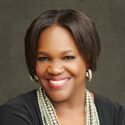I was preparing to cook a breakfast of pancakes, bacon, grits and eggs recently one Saturday morning for us, my parents, and my brother who was in town visiting. Normally breakfast does not consist of pancakes and grits. However, my husband and I wanted pancakes, and my brother always requests that I prepare grits and eggs each morning of his stay when he is in town. When bacon is on the breakfast menu, I always start cooking it first because it generally takes longer than the rest of the meal.
After lining the sheet pan with foil, I realized that I was out of bacon. There was none in the fridge or the freezer. The crazy part about this discovery is that just the day before, I’d moved one pack from my parents’ refrigerator to their freezer because I’d noticed that I’d overstocked them with bacon.
This revelation gave me pause because my over-preparation for their house and the under-preparation for ours has become common. I’d noticed previously that we’d run out of sodas and bottled water, but I’d made sure my parents had plenty of both. I realized that I was prioritizing their care over mine.
Many caregivers do the same — taking better care of those in their charge than of themselves. Chores and home repairs often go undone at their own homes while at the homes of those they care for, such things are meticulously managed. They report changes in behavior and health to doctors when they affect their loved ones but fail to book or keep medical appointments for themselves.
I can’t promise that I will master taking care of myself and my home as well I do for my parents, but I can try. I ask my caregiver friends who are reading to vow with me for the new year to avoid neglecting themselves. To those who are friends or family members of caregivers, please encourage and remind them to prioritize self-care and avoid sacrificing their own household and health for the sake of their duties.
Caregiving can be a difficult job, but it also can be very rewarding to care for someone who once cared for you. What’s even more rewarding, though, is prioritizing self-care and ridding yourself of stressors that can make you ill or incapacitate you. Caregivers must put on their own oxygen masks first. Doing this helps ensure that there’s a bit of “self” left to give to others, which helps improve the caregiver’s quality of life and allows her to provide better care to those in their charge.
Statistics show that most caregivers are women age 49 or older. Many of them work full time while juggling a family of their own. I am pretty sure many of these women find themselves constantly worrying. They may even lack the ability to remember things or have problems concentrating because they are in a constant state of overload. Some caregivers may abuse alcohol, drugs and/or food or find themselves always irritable, short-tempered or in retreat from society altogether.
I suggest that caregivers (or anyone) identify what stressor elimination looks and feels like for them. Some may find relief in removing themselves from a toxic work environment, getting out of a bad relationship (significant other, friend or family member) or simply setting boundaries.
Stress elimination is not easy, especially if you are used to being in a constant state of anxiety. When you start the stress-elimination quest, you’ll encounter resistance. When this happens, do whatever is necessary to stay the course of self-care. Your brain and body may even begin to rebel against you because they’re used to being under pressure; even so, keep going. Your brain and body, like people and organizations, will adapt.
Identify what relaxes you and commit to doing that thing routinely. Be selfish sometimes and go to the spa for a massage, facial, manicure or pedicure. Sleep in and watch television. Go fishing. Go running. Sit on the beach and watch the tide roll in. Paint. Read a book or two. Go to the movie theater, or just sit on the porch and enjoy the breeze.
Take time to care for yourself. Banish the stressors, and don’t feel guilty about it. Put on your own oxygen mask first!
Dr. Tracy Daniel-Hardy is director of technology for Gulfport School District, as well as an author, caregiver, educator and educational technology leader. Reach her at tracy@drtracydanielhardy.com.



